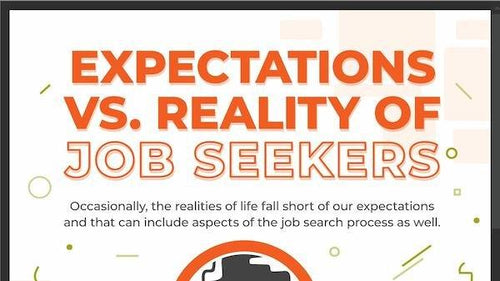
What Are Aptitude Tests?
If you’re in the market for a new job, the chances are that sooner or later you’ll be required to complete an aptitude test. You might not think much of it at first, but after filling out answers to a couple of tricky questions you might begin to wonder, “What exactly am I being tested for here?”
It’s easy to feel suspicious or maligned when being assessed in such a distanced manner, but it really is the case that aptitude tests are good news for employers and prospective employees alike. After all, you wouldn’t want to land a job you weren’t suitable for nor miss out on a job for which you were a perfect fit. Aptitude tests help to ensure the employment process runs as smoothly as possible.
Still, it’s not hard to wonder what’s going on behind the scenes of these tests. To help aid you in your quest for a new job, here’s an in-depth introduction to everything you ever wanted to know about the world of aptitude tests.

This blog contains affiliate links, meaning I may receive a small commission (at no cost to you) if you subscribe or buy something through the links I share. I only share links to products or services that I use myself or absolutely love!
What Even Is “Aptitude” Anyway?
Unlike an IQ test, which measures general intelligence, an aptitude test measures a variety of specific cognitive skills in order to help determine your strengths as a candidate. Verbal, numerical, or spatial reasoning are all examples of specific aptitudes. Whilst there is some evidence that IQ and aptitude are related, they are separate quotients and should be treated as such.
The most common aptitudes tested for include Numerical Reasoning, Verbal Reasoning, Situational Judgement, and Diagrammatic Reasoning—though there are many more. An employer may use any or all of these tests to help determine the best candidate for the role, so be prepared and practice in advance!
Why Do Employers Use Aptitude Tests?
Employers are faced with the difficult task of sorting through dozens or even hundreds of applications for a single role. Many applicants will have similar qualifications and experience, so differentiating between them can be tricky especially if the employer doesn’t have the time or resources to interview every single candidate. An aptitude test allows employers to find out more about the person behind the application, thereby helping to ensure that the job goes to the right person.
What Does An Aptitude Test Look Like?
Aptitude tests come in a variety of different styles, depending on the skills being tested for. Typically when completing an aptitude test, you will be required to analyze a piece of information and provide answers to questions about what you have learned. This information might be a detailed paragraph of text, a graph or set of data, or a described situation—it all depends on what the test is designed to measure. Most aptitude tests will be timed and in a multiple-choice format.
How Are My Results Measured?
Different tests will measure different things; however, it’s generally the case that there are correct and incorrect answers to each question in the test. Your performance is analyzed by comparing your score to an average group—an average performance is typically all that is required to pass an aptitude test.
One important thing to keep in mind is that many aptitude tests employ negative scoring, meaning that any wrong answers will result in marks being deducted from your final score. If this is the case, think carefully before rushing through the test as you might do more harm than good.
I Don’t Feel Very Well Prepared For All This...
The good news is, you can be! Rather than going in blind, it’s a good idea to get hold of some practice aptitude tests and see what it’s all about. Try and tailor your choice of practice tests to your own line of work, but remember that a well-rounded candidate with a wide variety of skills is often at an advantage. And remember, just like any other skill set, practice makes perfect!
Related Articles
-

Breaking Barriers: A Guide to Empowering Women in Manufacturing Leadership
Guest contributor Sadie Smith shares this comprehensive guide on how women can reshape the manufacturing industry landscape with actionable insights.
-

Navigating An Evolving Job Market With Strategies For Success
To thrive in a dynamic job market, you need to continuously adapt your job search strategies. Stay informed and flexible to position yourself for success.
-

4 Strategies Beyond Networking For Your LinkedIn Job Search
Supercharge your LinkedIn job search and stand out to recruiters and employers alike with strategies beyond networking.
-

4 Personal Assistant Interview Questions and Answers
Guest blogger Liza Griffen, co-founder of Tyler Griffen, equips you with a deep understanding of typical interview questions and practical answers to help you showcase your skills effectively whether you're aiming to impress in your first personal assistant role or looking to step up in your career.
-

Crack Your Dream Company Interview
Guest contributor Nandkishore Rathi shares practical tips, strategies, and insightful advice from career experts to help you shine during written and verbal interviews.
-

Exploring The Realities Of Job Hunting (Infographic)
Guest contributor Joseph Matalone delves into common expectations in job seeking and the contrasting realities.
-

Don't Panic: 15 Ways To Prepare For A Video Interview
Guest blogger Daniel Boyce with Aware Recruiter delves into 15 actionable steps to prepare you for a stellar video interview experience whether you're a seasoned professional or just stepping into the job market.
-

5 Signs That A Company Values Employee Wellness And Safety
Guest blogger Sharon Feldman shares how asking questions about wellness and safety in your interview could give you insight into a company’s values.
-

12 Strategies To Build Networking Connections That Lead To Job Offers
Breaking down the value of networking and the top strategies to harness the power of making strategic connections to land the job of your dreams.
-

Can An Employer Fire You For Being Sick?
Many employers can terminate an employee for falling sick frequently. Guest blogger Natalie Padilla shares all you need to know regarding being fired by an employer.
-

Organizing Your Job Search With ClickUp: Review
This review shares how ClickUp, a free desktop and mobile app for business AND personal use, can be used for organizing your job search and holding you accountable toward achieving your career goals.
-

Tips On Building A Positive And Supportive Workplace
Guest blogger Adam Blacksmith shares how to embrace communication, celebrate diversity, and empower your team for success by fostering a positive and supportive workplace culture.
-

AI: Transforming Networking, Interviews, and Careers
Guest Author, Dean Fankhauiser. discusses how AI is revolutionizing networking, interviewing, career planning, and professional advancement.
-

Preparing for Different Interview Formats: Phone, Video, and In-Person
Interview Coach Ellie Hoekman shares specific preparation steps for phone, video, and in-person interviews.
-

5 Ways To Stand Out At A Career Fair
Learn how to stand out at a career fair (virtual or in-person!) to move you forward in your job search, especially if you're changing careers or have an unconventional work history.
-

Negotiating A Competitive Salary
Guest blogger Rohan Singh shares strategies for negotiating a fair salary that reflects your worth and fulfills your goals.
-

Can My Employer Ask Why I’m Taking A Sick Day?
Guest blogger Samantha Larson shares whether your employer has the right to ask you why you are sick and how much information they are entitled to when you take a sick day at work.
-

The Benefits of Coaching in the Workplace
Guest blogger, William Powell, shares some of the concrete examples of the benefits associated with employee coaching.
-

10 Facts & Stats About Sexual Harassment in the Workplace
Guest blogger Sharon Feldman shares how many people experience harassment every day, including at their place of work, to increase awareness.
-

The Ultimate Temping Guide for Beginners
Guest blogger Auria Heanley with Oriel Partners shares insight into what a temp job is and what to expect in order to make the most of a new job opportunity.
-

How To Get More Informational Interviews
These tips outline how to get more informational interviews during your job search and expand your options by making this networking approach your primary strategy to find a job.
-

High Paying Career Paths After Learning Python
Guest blogger Rose Young with Codebasics.io shares some of the promising career paths you can explore after learning Python programming.
-

How To Ace Your Interview With A Staffing Agency
Guest blogger William Powell shares how to prepare adequately for an interview with a recruiting agency to increase your chances of landing your dream job.
-

How Do You Know When It's Time To Quit Your Job?
Guest blogger Katie Meyers shares when quitting your job is the right thing and how to go about it.
-

5 Things You Need To Know About Job Interviews To Succeed
Guest blogger Marcus Ralph shares 5 tips on what you can do before a job interview to be best prepared to make a solid first impression and land the job.
-

Know Your Worth and Add Tax: How To Effectively Negotiate Your Salary
Guest blogger Jeffrey Cassells with Shegerian Law advises that it's time to learn how to negotiate strategically and not settle for being underpaid, whether you're at your first or fifth job.
-

5 Outside The Box Skills That Can Get You a Job in 2022
Guest blogger Jessica Robinson highlights the top 5 skills that are crucial to attain for creating a successful career in your desired industry in 2022.
-

8 Tips for Fresh College Graduates To Land Their First Corporate Job
Guest blogger Cristi Waterson shares her compiled list of top tips for fresh college graduates to help land their first corporate job.
-

6 Job-hunting Mistakes You Should Stop Making
Guest blogger Kelly Barcelos with Jobsoid shares 6 mistakes you must avoid during your next job search that are making it more difficult for you to get hired.
-

9 Must-Have Qualities of An Effective Leader
Guest blogger Nicole Marie with Michael Page shares which leadership traits are the qualities that enable someone to guide teams and projects to successful completion.
-

11 Job Search Tips to Get You Hired Faster
Guest blogger Lori Wade with Affinda shares tips and strategies to get hired faster in any competitive job market.
-

How To Build Your Career Plan
A career plan is a fantastic tool for tracking your development in your career. Guest blogger Nagasunder S. with WhatJobs shares about how to keep track of your progress and, as circumstances change, make alterations to your career plan.
































